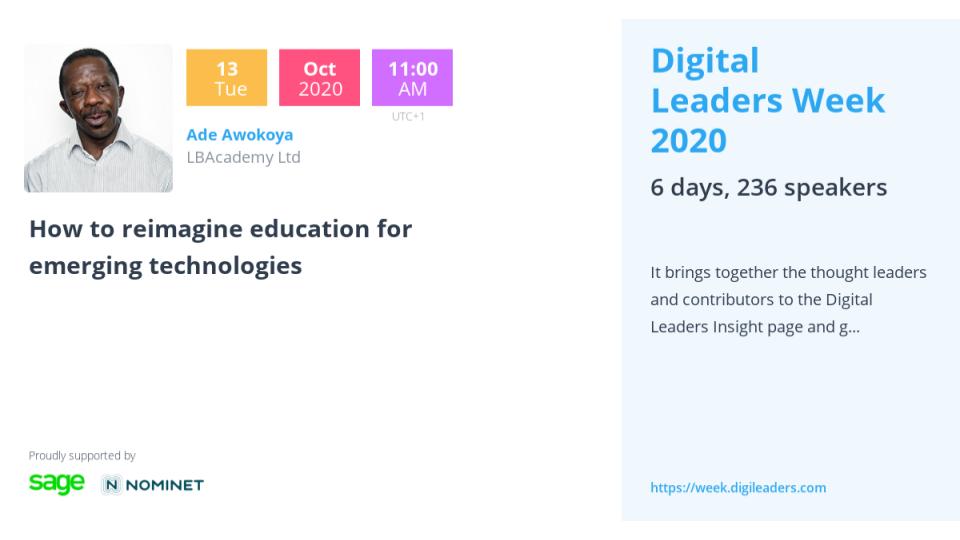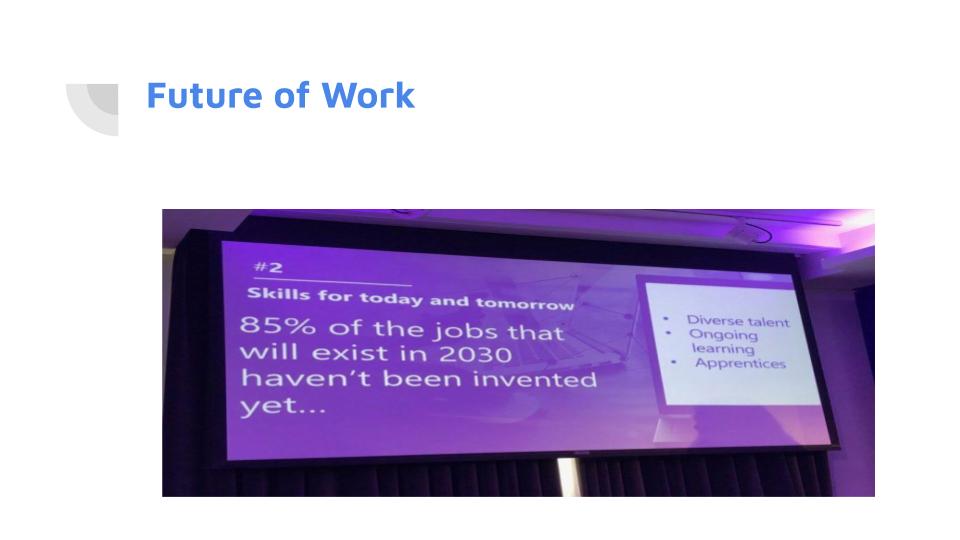Background: There is a current state of flux with regards to technical education with a skills gap between candidates and the tech sector vacancy. My specific focus is on emerging technologies. I.e. AI, Cybersecurity, Blockchain etc.

The potential for education to reimagine a post-pandemic world is enormous and my focus is on how the London digital sector can innovate and lead the way for the country. We also need to champion the resilience being shown at this time, especially amongst digital leaders.
Target group: The career seekers status would cover from, start age 18 years old, include fresh hires and cover up to those 50 years who need to retrain.’ These could be broken down into segments for specialized support.
Digital Skills Gap
London, and the UK at large, is facing an unemployment crisis, and there is an urgent need to improve the provision of skills training and education to close the digital skills gap. This current situation has been previously overlooked and has now been exacerbated by the pandemic and devastation of the UK service sector. which contributes around 80% of GDP.
“An estimated 5.8 million people have never used the internet at all. This digital skills gap is costing the UK economy an estimated £63bn year in lost additional GDP.”
according to a report by the House of Commons Science and Technology Committee (2016)
Due to Covid-19, industries are going digital and our ways of working need to change dramatically to effect change and avert the unemployment crisis. Digital skills will demand very different talents to affect the current economic malaise.
How to reimagine education
Education needs a realignment with the tech industry, people need to have the (upgraded) skills that employers need. However the UK’s approach to lifelong learning is inadequate and requires effective policy change to require new skillsets made available by employers or the state.
Covid-19 means that lifelong learning cannot be ignored. There is a big role for the private sector to play in funding the reskilling and upskilling of workers with strong coordination from the public sector. We need to focus on innovation for the edtech track, avoiding syllabus & certifications, by adopting an agile continuous learning model. e.g.
[1] based on peer review, using data analytics and blockchain
[2] advocating for Open Source standard
Case study 1
Industry standards – Google
A prime example is Google’s new certificate program to disrupt the U.S. College Degree. The program takes only six months to complete, and will be a fraction of the cost of college
“The new Google Career Certificates build on our existing programs to create pathways into IT support careers for people without college degrees,”
Kent Walker, SVP of global affairs at Google.
Career Change: For a candidate seeking a career change there is an optimum route to a tech career if we can successfully reimagine education. Remember, nowadays it’s all about skills – not degrees. Frameworks will need to identify talent and establish metrics. An obvious route would be reskilling those already in the workforce, who have industry and subject matter expertise but lack the tech skills. My mantra would be “Reskill and upskill”.
There is now a plethora of learning (education) platforms e.g. EdX and FutureLearn based on MOOCS model still have traction, but are based on legacy (university) institutions and place an emphasis on Certification.
Case study (2)
Peer Review – Stackoverflow “For developers, by developers”
Stack Overflow is an open community for anyone that codes. The site helps businesses find and hire skilled developers but they do not have a recruitment bias. The public platform serves 100 million people every month and hence has a robust data-set for analytics to perform peer review to find the best developers in a niche (granular) area. It It is an advocate of using ‘code reviews’ and the collaboration helps to improve the organization’s quality approach to tooling and automation.

Paradigm shift: There needs to be a paradigm shift away from the historical based dependency on diplomas and certification. The edtech sector should take a lead in developing ‘frameworks’ and standards., based on peer review, using data analytics and blockchain would be a route to avoid the pathway. Work should be done in tandem with academics, and educators, on a pedagogy that is action-based, nimble, reusable and avoids bias.
emerging technologies
“6.6 million UK jobs will be displaced by 2030 and most of future tech jobs have not yet been created. There is an urgent need to ensure the next generation of IT talent have the skills to work with emerging technologies”
– McKinsey’s November 28, 2017 Report
Emerging tech which includes Artificial Intelligence (AI), Machine Learning (ML), Data Analytics has led to a displacement of low skill jobs and there needs to be an emphasis on ‘Life Long Learning’ to upskill.
With the 4th Industrial Revolution upon us, it’s more important than ever to broaden the talent pool and attract or develop a more diverse pool of potential candidates.
There is an opportunity because the tech sector is an engine of job growth however the service ecosystem that accompanies is often overlooked e.g. sales, marketing, research, logistics where candidates can be easily retrained.
An overlooked constraint for tech companies scaling across London boroughs., is the telecommunications capability due to the slow rollout of 5G networks. Emerging technologies are based on ‘big data’ which hog bandwidth so this bottleneck needs to be given priority.
CareerTech
There are many organisations that know how to conduct digital skills training but we need to build a policy framework that supports lifelong learning and builds on the relevant expertise and knowledge required for employment in the tech sector.
Good news – The Nesta CareerTech Challenge, which started in October 2019 and will end in June 2021, has provided funding for solutions to future-proof adults in job roles most likely to change, i.e. challenged by automation.
The programme focuses on stimulating new solutions for workers, to upskill and retrain online, or access accurate data-driven information, advice and guidance that helps them find work. 31 innovators have been awarded funding and support via the CareerTech Challenge.
Not so Good news – The recruitment process however is a bottleneck and the wide adoption of screening by AI-driven platforms and algorithms is subject to bias.
Invitation
Please join me for an interactive session during DL Week to discuss on 13 October.
https://week.digileaders.com/talks/how-to-reimagine-education-for-emerging-technologies/
